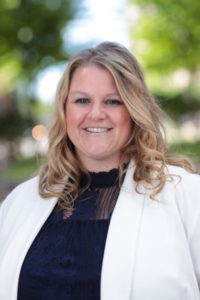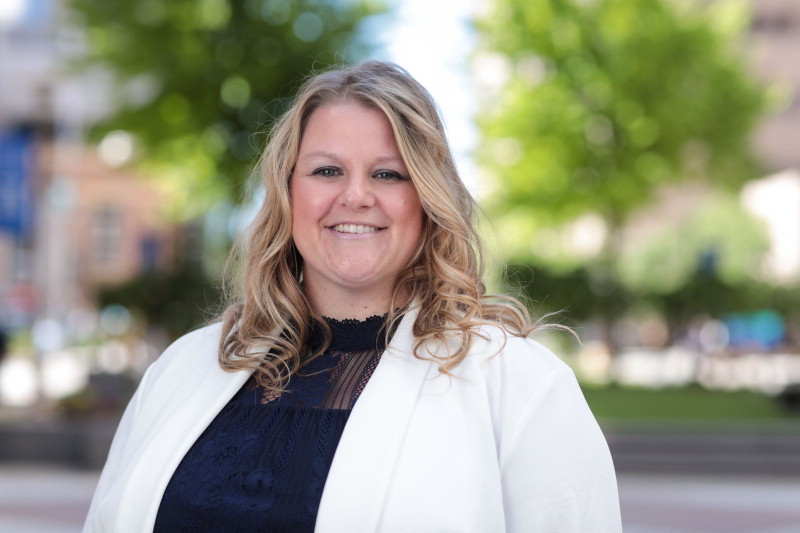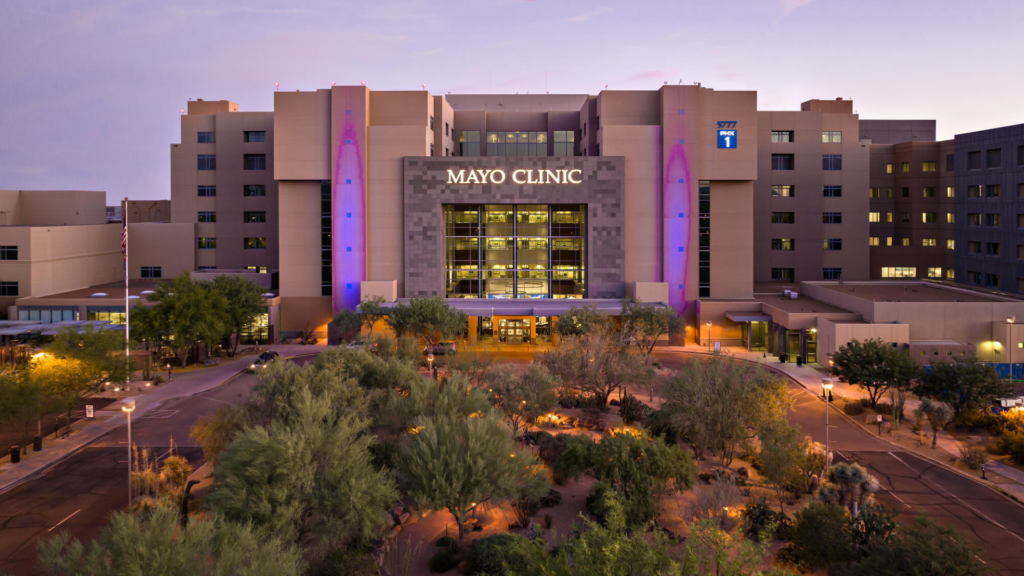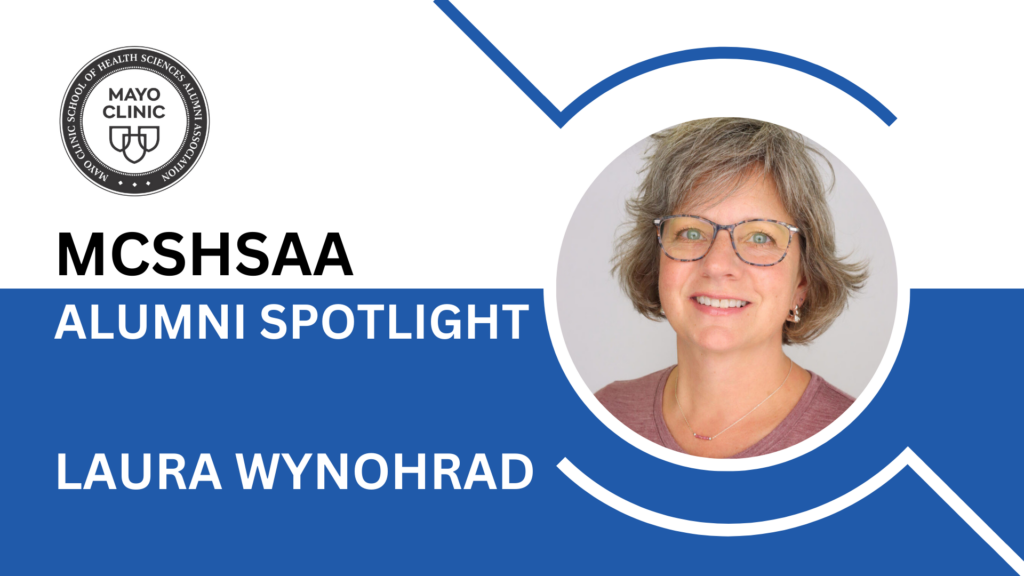 Jenna Steege, APRN, CRNA, DNP (NA ’14), a nurse anesthetist in the Department of Anesthesiology and Perioperative Medicine and an instructor in anesthesiology at Mayo Clinic in Rochester, received a 2019 Mayo Clinic School of Health Sciences Outstanding Educator Award. She’s been a core faculty member of the MCSHS Nurse Anesthesia Program since 2015.
Jenna Steege, APRN, CRNA, DNP (NA ’14), a nurse anesthetist in the Department of Anesthesiology and Perioperative Medicine and an instructor in anesthesiology at Mayo Clinic in Rochester, received a 2019 Mayo Clinic School of Health Sciences Outstanding Educator Award. She’s been a core faculty member of the MCSHS Nurse Anesthesia Program since 2015.
For her doctoral capstone project, she implemented an evidenced-based preceptor development program. “We don’t have designated preceptors for CRNAs — it’s just assumed that all CRNAs will precept learners,” says Steege. “As a result, CRNAs who precept frequently burn out. I created a group of primary preceptors and provided classes on giving feedback, effective evaluations and coaching techniques. Throughout the program, the group of clinical educators was provided with mentorship, support and recognition for their role as primary preceptors. I implemented the program two years ago, and 22 CRNAs have been through it. The program has improved preceptor and learner satisfaction as well as patient safety.”
When did you become interested in health care?
I grew up in Zumbrota, Minnesota, and participated in a Mayo Clinic program to learn about health care professions when I was in high school. I was immediately interested in nursing.
My mom worked at Mayo Clinic in finance and business services for her entire career; she retired two years ago. Two of my cousins are nurses at Mayo Clinic. All of my cousins on my dad’s side are nurses, so I guess I come by it naturally.
I started college at the University of Wisconsin-La Crosse as premed. I switched to education (for teaching), then respiratory therapy, then nursing and transferred to Winona State University.
Now as a faculty member for the Nurse Anesthesia Program, I get to be a practitioner who cares of patients every week and a teacher who educates the future of my profession.
How did you choose nurse anesthesia for your career?
I got my bachelor’s degree in nursing and wanted to advance my degree. I completed a semester of school to be a nurse practitioner or midwife and then decided to pursue a master of nurse anesthesia degree. I became firm in my career decision when I got a chance to be in the operating room. I saw how vulnerable patients are and how much they rely on you in their compromised state. Nurse anesthetists are advocates for patients.
When I joined the MCSHS faculty, I decided to pursue my doctor in nurse anesthesia. That program taught me about health care policy, evidence-based practice and leadership. It made me a completely different practitioner.
What do you like most about your job?
I get the best of both worlds. I practice part-time — taking care of patients in their time of need — and teach the future practitioners in my profession how to effectively care for patients.
What do you like about teaching?
I love sharing what I’ve learned in school and through experience — things I wish I’d known! I also like passing along the Mayo Clinic values about how to effectively care for patients. It’s rewarding to instill those values in people who will go on to other institutions and share those values with colleagues they interact with.
How do you know when you’ve done a good job teaching?
I teach a pharmacology course, which is one of the biggest backbones of anesthesia. I know I’ve done a good job when students start their first rotation and know how to give medications and understand how they work.
What’s most challenging about teaching?
It’s challenging to keep up to date on all the changes in a fast-paced profession.
What do you want learners to know?
Many people don’t realize how capable they are. Each person has an individualized plan to get to the same level. You may need to study six hours whereas someone else needs only one hour. Focus on what you need to do to get the job done. Don’t compare yourself to everyone else.
What makes a good teacher?
Being a good educator means supporting students and providing them with the tools they need to get through a difficult program as well as providing them with challenges. It’s important to be a mix of supporter and challenger.
What does it mean to win a teaching award?
I was humbled by the award. We’re surrounded by amazing educators at Mayo Clinic, and Mayo Clinic School of Health Sciences has many great educators. I’m pretty much a novice in my educator career. The award motivates me to continue to strive toward being a good educator.
I don’t feel like the award is for me. It’s for the entire Nurse Anesthesia Program. Our 10 educators, three administrative assistants, and adjunct faculty go above and beyond what’s required. It takes all of us to deliver this program. Our program director, Mary Marienau, CRNA, APRN, PhD, MS, RN (NA ’79), will retire in July 2020. She’s been indispensable to the program.





